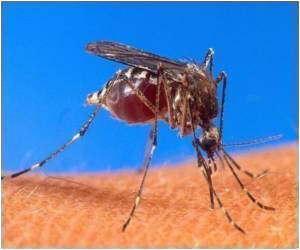Scientists envisage that by 2020 there would be vaccines for malaria, TB, and HIV/AIDS.

In the May 26, 2011, edition of the premier scientific journal Nature, they also discussed new tools including systems biology and structure-based antigen design that could lead to a deeper understanding of mechanisms of protection.
This, in turn, will illuminate the path to rational vaccine development to lift the burden of the world's most devastating infectious diseases.
According to Aderem, a systems biology pioneer who recently joined Seattle BioMed to incorporate that approach with the Institute's infectious disease research, new conceptional and technological advances indicate that it will be possible to develop vaccines for the "big three" infectious diseases within the next 10 years.
"Success will be largely dependent on our ability to use novel approaches such as systems biology to analyse data sets generated during proof-of-concept trials," he explained.
"This will lead to new insights such as the identification of correlates of protection or signatures of immunogenicity and the acceleration of large-scale clinical trials," he stated.
Advertisement
The article discussed the strengths and criticisms of the systems biology approach, with the key strength of the approach lying in its ability to capture and integrate massive amounts of biological data to visualize emergent properties that are not demonstrated by their individual parts and cannot be predicted from the parts alone.
Advertisement
"From there, we can optimise vaccine candidates and predict whether a drug or vaccine candidate can work before it moves into large scale, very expensive clinical trials," he explained.
Systems biology can also be used to speed the often lengthy clinical trial experience.
Aderem and Rappuoli estimate that in trials of new vaccines for malaria, TB and HIV/AIDS, only one hypothesis has been tested every eight years in the past three decades.
"We cannot afford this approach if we want to have an impact on disease in a reasonable timeframe," Aderem said.
"We can accelerate clinical development by performing more efficacy trials and by improving their design using systems biology approaches to test several hypotheses in parallel and having an adaptive design to expand the outcomes that prove most promising," he added.
Source-ANI










